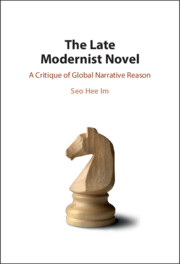Book contents
Chapter 3 - Nabokov’s Supranational Metonymy
Published online by Cambridge University Press: 02 June 2022
Summary
The third chapter shows that Vladimir Nabokov, seeking to replace the superannuated form of national allegory, constructs a figure of supranational metonymy through chess. Critics have explained that the Bildungsroman is a novel of socialization that displays how an individual finds his place in a social world and projects a trajectory of collective progress. Like Beckett, though, Nabokov was a post-revolutionary expatriate who made his career in another language. One of Nabokov’s targets was the notion that novels offer national allegories. Reading Nabokov’s early novels, which feature Russian exiles who rove across the continent as if across a chessboard, I reveal the writer’s interest in crafting a “personal world” that travels well across borders. The figure of metonymy presents advantages over metaphor. First, elastic in scale, metonymy represents spaces smaller or larger than the nation. Second, where national allegories had to install generic template protagonists at their narrative centers, supranational metonymies stress individual idiosyncrasy, accommodating abnormalities; they reject the premise that there can be such a thing as a generic national character.
- Type
- Chapter
- Information
- The Late Modernist NovelA Critique of Global Narrative Reason, pp. 94 - 118Publisher: Cambridge University PressPrint publication year: 2022



